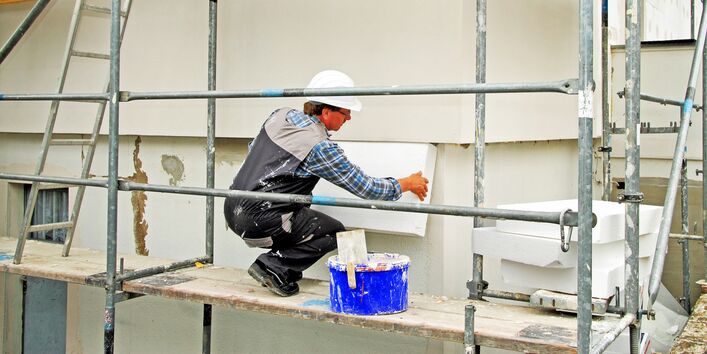Skilled workers sought for the socio-ecological transition
Germany intends to become climate-neutral by 2045. To achieve this and other sustainability goals, a comprehensive transformation of the world of work is necessary. This transformation requires a sufficient number of well-qualified specialists to implement and advance the necessary measures on the road to a sustainable society. If these skilled workers are lacking, this process will slow down or may not be able to get off the ground. Education, training and sustainability must therefore be more closely linked.
To coincide with the German Sustainability Action Days from 18 September to 9 October, the Federal Institute for Vocational Education and Training (BIBB) and the German Environment Agency (UBA) have published a joint position paper with recommendations for action on how the socio-ecological transition can be achieved at a time when there is a shortage of skilled workers.
The BIBB and the UBA consider the following measures to be important for improving the links between education, training and sustainability and for increasing the attractiveness of sustainability-related activities:
- Strengthening sustainability skills in education and training
- Increasing the attractiveness of the required training occupations, improving working conditions and communicating this in the corresponding occupational profiles
- Designing vocational training with attractive career concepts in a flexible, inclusive and excellent way
- Creating planning security for companies and those seeking training in the field of sustainability
- Systematically identifying the requirements for skilled workers and qualifications for the socio-ecological transition
- Implementing measures to ensure a supply of skilled workers, for example, reducing the emigration of urgently needed skilled workers and harnessing untapped labour market potential
“Climate change is a reality. We must act wisely now to make our society climate-neutral and at the same time adapt to the consequences of climate change. This can only be achieved with a sufficient number of skilled workers,” says UBA President Dirk Messner. “This requires a wide range of professions. We need skilled workers to expand renewable energies, to renovate buildings to make them more energy efficient, to restructure the automotive and chemical industries and to further develop the circular economy. But qualified personnel are also needed in the healthcare sector to provide people with good care in the event of extreme weather events.”
“Insufficient attention is still being paid to the importance of vocational training for the success of the transformation. All stakeholders in politics, administration and business should be aware of the key role of vocational education and training and urgently introduce measures for a successful socio-ecological transformation in line with our recommendations for action,” stresses BIBB President Friedrich Hubert Esser. The BIBB contributes to this by continuously developing training regulations with regard to new requirements, together with the responsible federal ministries, social partners and experts from company practice. In addition, we explore career concepts in transformation-relevant occupations in order to make training programmes in the dual system as a whole more flexible, inclusive and excellent.”
